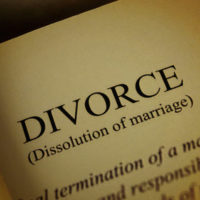Where You Get Divorced Matters: Community Property vs. Equitable Distribution

Unless the parties had a premarital agreement, property division is usually the costliest and most time-consuming portion of a divorce. In general, divorce laws vary significantly from state to state. That’s also true with regard to property classification and division.
Like most other jurisdictions, Florida is an equitable division state. As outlined below, marital property is divided equitably, based on a number of factors. Texas, California, Arizona, and a few other Western states are community property states. In most cases, the dates of marriage and separation are the only relevant factors.
Experienced Port St. Lucie divorce attorneys know how to use equitable distribution laws to benefit their clients. That includes both courtroom arguments and settlement negotiations. Arguments which stray too far from the factors often fall flat. And, judges often do not approve settlements which do not fully account for all property division factors.
Community Property
This rule is based in Spanish law, which explains why it’s mostly prevalent in the West. The community property doctrine takes the ethereal idea of the two becoming one (think about the unity candle at some weddings) and applies it to the marital estate. The “estate” includes all assets and debts, as well as all income produced from marital assets.
Simply put, judges in community property states assume all marital property should be divided 50/50. In some states, this presumption is rebuttable.
On the plus side, the community property rule greatly simplifies the classification and division process. The judge only needs a calendar and a calculator.
The big drawback to a community property division is that, in many cases, it’s grossly inequitable. That’s especially true if one spouse, who is normally the wife, gave up career advancement to be a stay-at-home parent. That’s true in almost a third of the marriages in Florida.
Frequently, these women are unable to support themselves financially. So, taking on half of marital debt is a significant burden. To offset this burden, spousal support awards are usually higher in community property states.
Equitable Distribution
In contrast, Florida and the other equitable distribution states use a much more fact-specific approach. This rule comes from English common law, which explains why most U.S. states use it. Generally, equitable division is a two-step process.
First, the judge must separate marital from nonmarital property. That’s not always easy. For example, assume Sally owns a daycare and Mike is a business manager. After the marriage, Mike transforms Sally’s struggling daycare into a profitable enterprise. Based on the facts, the daycare could be Sally’s nonmarital property, Mike’s nonmarital property, or marital property subject to division. The same thing is true of all future business income.
Second, the court must divide marital property according to a number of factors. These factors are in place so the divorce will not be an unfair financial burden for either party. Some of these factors include:
- Length of the relationship,
- Relative earning ability of the spouses,
- Alimony and child support awards,
- Noneconomic contributions to the marriage, and
- Agreements between the parties.
As mentioned above, if the parties agree on a distribution and it at least somewhat reflects the factors, most judges will approve such a settlement.
Contact a Tenacious Lawyer
Divorce property division laws and procedures vary significantly by state. For a free consultation with an experienced Port St. Lucie divorce attorney, contact Eighmie Law Firm, P.A. Convenient payment plans are available.
https://www.eighmielawfirm.com/a-guide-to-successful-post-divorce-relocations/


